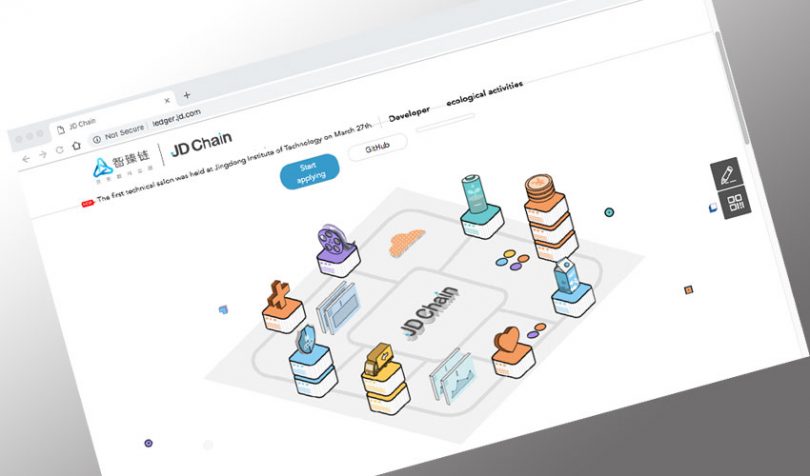Last week JD.com open sourced its JD Chain blockchain framework. Five months ago the company launched a service, the JD Blockchain Open Platform which enabled companies to use JD’s platform but only via pre-built APIs. This targeted companies who don’t have the expertise to develop their own solutions. It includes applications like traceable e-invoices. Now JD has opened up its blockchain protocol which enables enterprises to build custom solutions.
The company is also launching the JD Chain Open Source Community to encourage collaboration. JD Chain is made available under the Apache 2 license and is now on Github.
JD.com says the aim is to improve blockchain performance in five areas. These are the data ledger, the consensus protocols, cryptographic algorithms, data storage and APIs. The company claims the current iteration is capable of 10,000 transactions per second.
The retailer believes that blockchain technology has “huge potential” to enhance transparency in the supply chain providing customers with “peace of mind about the quality and authenticity of their purchases”.
Last October the Financial Times reported that Gucci was reluctant to partner with Alibaba and JD.com because of the prevalence of counterfeit products on the platforms. But the company is engaging with JD.com. CEO Marco Bizzarri told the FT: “Instead of taking a risk, I wait.”
To date, JD.com has deployed its blockchain technology across 700 brands and 50,000 products.
But supply chain is only one of the applications envisaged. The JD Chain website outlines solutions in health, payments, charity and green energy.
Pharmaceuticals
Using the same platform, in December JD announced a new pharmaceutical traceability solution called the “JD Medicine Open Tracing Solution”. This follows numerous vaccine scandals in China relating to the sale of expired vaccines or substandard products.
Last year we wrote about a case where the vaccine producer had allegedly fabricated inspection records for rabies vaccines in China. Babies as young as three months old received substandard vaccines. Blockchain isn’t a guaranteed solution, but it may help in these cases. The documents should be digitally signed proving who authorized them, so if they are fabricated, it should be easier to place the blame, which may act as a disincentive.
IoT deal
Today blockchain Internet of Things startup MXC Foundation said it signed an agreement with JD for logistics and live product tracking. JD.com will test MXC’s lower powered wide area network (LPWAN) technologies in its warehouses for asset management and tracking.
German MXC is positioning itself as a competitor to IOTA. In October 2018 the foundation raised $24 million in an ICO, with the tokens now valued at a quarter of that figure. A ticker at the bottom of the website states that “MXC aims to take top spot as the world’s most valuable IoT token”.







